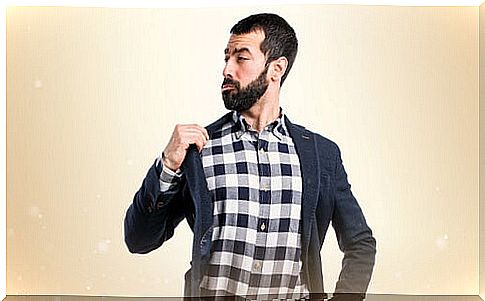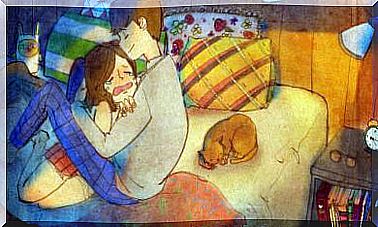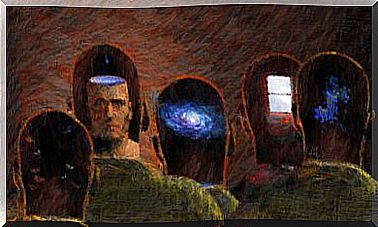Vain People: Traits And Behaviors That Characterize Them

Do you know someone who thinks they are always right? Do you feel that you treat others with contempt or superiority? If the answer is yes, then you have identified how vain people behave . With this type of attitude they show that they idolize themselves as much as they despise others.
Vanity is defined as pride and overvaluation of one’s own merits and abilities. Likewise, vain people take it for granted that others hold them in high regard and regard because they are at a higher level. His personality is made up of an excess of arrogance and conceit.
3 traits of vain people
Pride
“Do not pollute the fountain where you have quenched your thirst.” This phrase by William Shakespeare perfectly sums up one of the main psychological traits that all vain people have in common: pride. Haughty people cannot hide easily because pride gives them away. Their sufficiency and pride may go more or less unnoticed on a day-to-day basis. But as soon as they are in a slightly more compromised situation, pride emerges without the possibility of controlling it.
Therefore, its psychological implications go beyond the bad image that these people have socially. The difference between pride and pride is that the latter is not accompanied by the need to devalue other people, pride does.

Narcissism
Conceited people have disproportionate love for themselves and live in a world of unbridled fantasies of success, power, and beauty. This causes them to be pretentious and to admire and evaluate themselves excessively.
However, its airs of grandeur hide a strong distrust and insecurity. Therefore, they are constantly aware of what people think of them and their image. That is, on the one hand, they want to show that they don’t care about any opinion other than their own. On the other hand and paradoxically, what other people say about them obsess them. Deep down, narcissism hides a weakness.
Megalomania
Although closely related to narcissism, megalomania has a somewhat more pathological undertone. It is considered a mental disorder because it manifests itself in the form of a rigid pattern of behavior based on fantasies, delusions of grandeur and the constant search for self-gratification.
The vain people with a megalomaniac tendency think that they are socially very relevant, they consider themselves capable of doing really great things and possessing enormous wealth. However, these beliefs are irrational and overrated.
How do they behave?
Vanity induces arrogant behavior and a strong desire to be admired by others. Some of these behaviors are:
They are almost always believed with reason
Lack of modesty and humility make people believe they are right simply because of who they are. For this reason, on many occasions, vain people use a position of false power or authority over others, to defend and impose their points of view.
They are aware of their public image, but without showing it
They constantly need to know how they are considered or what opinion others have about them. However, they try to hide that need and appear indifferent. It is remarkable the importance they give to social networks, the first stage in which their claims of magnificence are usually exhibited.

They seek to stand out and be the center of attention
Conceited people seek to stand out above the rest because they consider themselves magnanimous. They add theatricality to everything they do, even when they are introduced to strangers. In fact, sometimes they even seem fresh out of a work of scenic art. They tend to dramatize moments in their daily life and sweeten others, as if they were playing a romantic role.
They get angry over trifles
Pride makes them angry about unimportant details or situations. For example, if they think you are not paying enough attention to them, they often unconsciously look for any excuses or carelessness to confront you.
They instrumentalize others
Narcissistic people treat the people around them as objects or means to their ends. The objectification of others fuels their claims and their consideration as superior beings. And their airs of grandeur make them manipulate others to use them as a way to gain greater power.

Now, loving yourself is not synonymous with being narcissistic or vain. It is a sign that our self-esteem and our self-concept are in good condition. However, believing oneself with the moral authority to step on others shows nothing more than pride and lack of humility.
How to reduce vain and narcissistic behaviors?
In the words of Bermejo, FS (2007) listening to the other, learning to enjoy each other’s company, we dare to miss each other and need each other. It is not necessary to eliminate the differences and globalize everything. It is necessary to respect individuality and subjectivity, which is not the same as individualism and superficiality. Possibly this is the basis for leading a calm, serene and non-narcissistic life.









